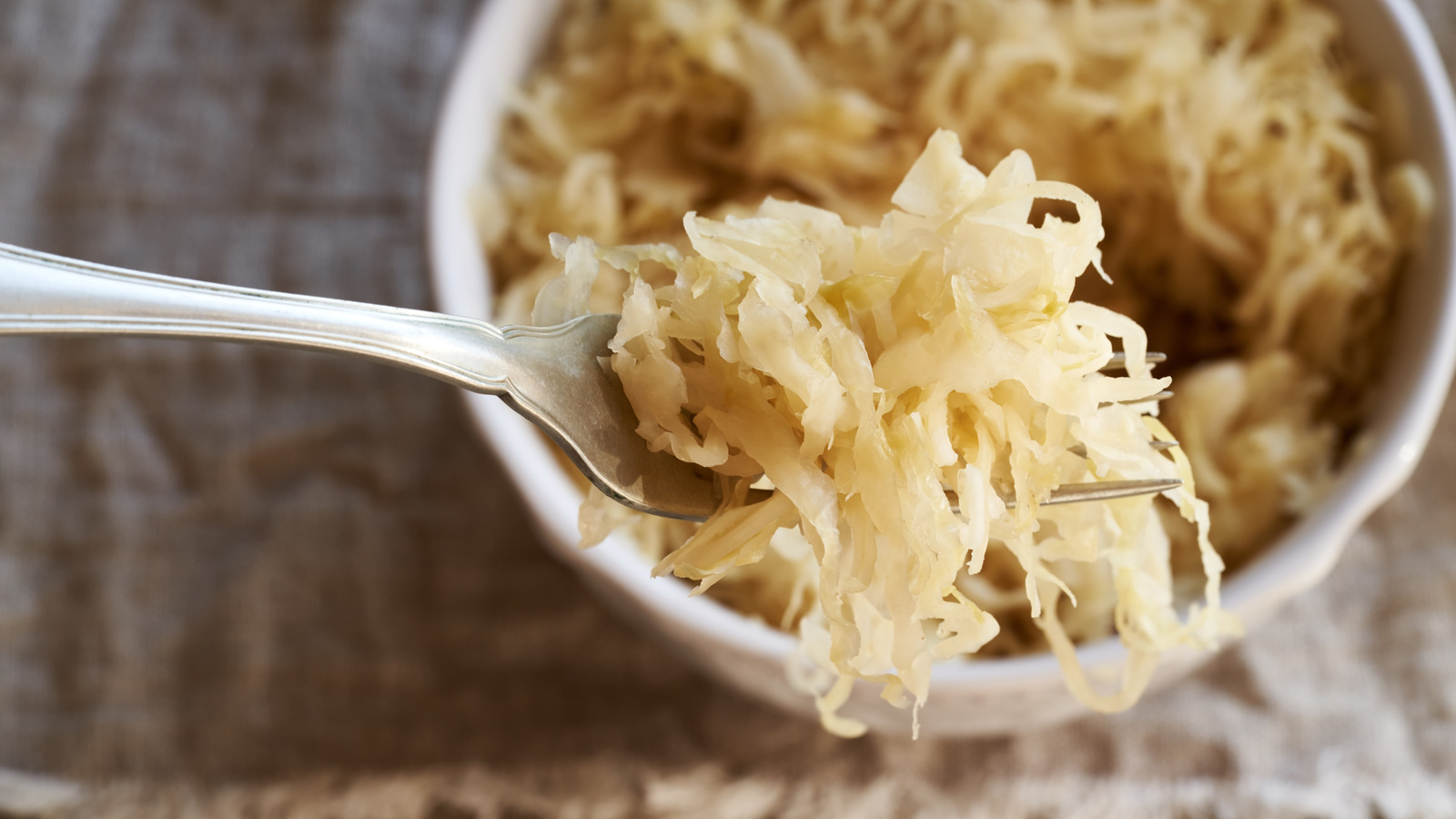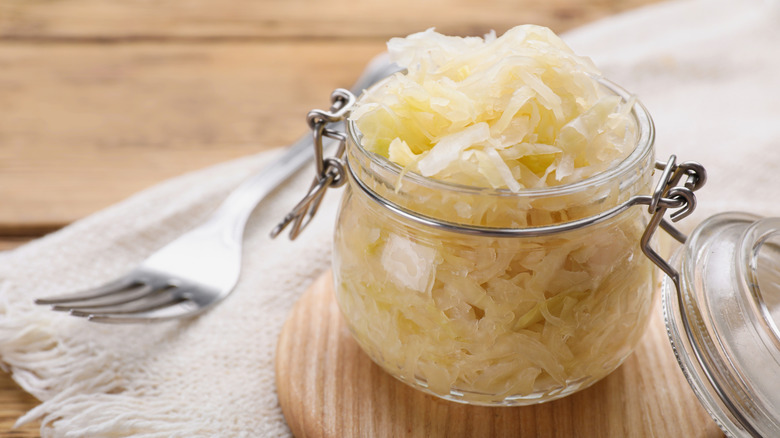Fermented cabbage isn’t everyone’s idea of a good time, but fans of the stuff relish the crunchy sour element that it brings to Reuben sandwiches or as a side for grilled meats. And that’s even before you get to the health benefits. Sauerkraut, like other fermented foods, is an excellent source of probiotics, helpful bacteria that benefit gut health.
Whether you eat it to reach your five-a-day, or just love the taste and texture, it’s better to keep your sauerkraut out of the freezer. Cabbage contains a lot of water, which expands as it freezes, rupturing the cells of the leaves. Once thawed, you’ll find your once-crisp cabbage turns into a soft mess.
Perhaps more importantly, however, is that the temperature in your freezer is too low for the bacteria. Freezing will not only halt the growth of probiotics but also kill off the beneficial bacteria. The one instance where freezing sauerkraut won’t make a difference is if it has already been cooked, as probiotics won’t survive at temperatures above 115 degrees Fahrenheit.
Tips for storing sauerkraut
The good news is that sauerkraut by design already has a long shelf life, but will vary depending on whether you’ve bought readymade sauerkraut or prepared the cabbage yourself. Storebought sauerkraut can last up to a year in the refrigerator, while homemade sauerkraut is best consumed within six months. Additionally, the fridge-life doesn’t decrease after you open the jar, as the live bacteria keep it fresh when properly sealed.
To prevent the wrong kind of bacteria from growing, ensure that it has an airtight lid and that the fermenting liquid covers all of the cabbage, as anything that sits above the surface is exposed to oxygen and could get moldy. If you don’t have enough liquid, you can top it up with a 2% brine, made by dissolving 1 teaspoon of salt in a cup of water.
Shelf-stable sauerkraut, either in cans or jars, can be stored in the pantry until the best before date. But be aware that this is not live sauerkraut, and has been pasteurized to ensure a longer shelf life, killing off the helpful bacteria in the process.






